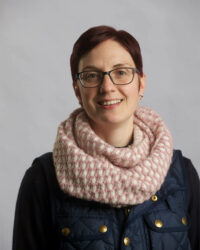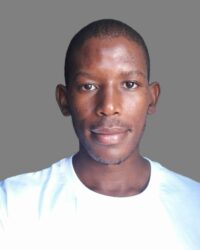SACEMA Course: Applications Closed
Introduction to data management, exploration and communication with R
04 – 08 March 2024
Deadline for applications: 20 February 2024
Click here to apply.
Course fee
R10 550,00
Please note that full payment must be processed prior to start of the course.
Enquiries may be directed to the SACEMA Training Coordinator, Faikah Bruce (faikah@sun.ac.za) or course presenter Dr Larisse Bolton (lbolton@sun.ac.za).
Course Overview
R is an open-source, statistical software platform that is growing in popularity due to its rapidly expanding number of libraries containing cutting edge statistical functions, as well as the user-friendly, built-in communication tools in RStudio. Course participants will build on their basic working knowledge of base R, and will learn good coding practice, import and clean data, the basics of analysing and visualising data, and reporting results. Specific topics that will be covered include thinking code, importing and exporting data, cleaning/tidying data, joining datasets, dealing with dates and factor/categorical variables, and summarizing data using basic descriptive statistics, plots, and tables.
Course Outline
Participants will learn the basics of:
- R programming and coding style
- Data importation into and exportation out of RStudio
- Data cleaning/tidying into a format suitable for analysis (using tidyverse packages like dplyr and tidyr)
- Data analysis using basic descriptive statistics
- Data exploration and visualization using ggplot2 and a combination of R packages for plotting and summarising data
Participant requirements:
- Be familiar with R and RStudio.
- Have a working knowledge of base R and be familiar with working within the console, especially,
- Creating and manipulating R objects
- Basic plots
- Functions vs packages
- Working directories
- Be comfortable with using the “help” functionality within RStudio
The course is suitable for graduate students or professionals who are familiar with statistical analysis and have managed or interacted with datasets.
Course Presenters

Dr. Larisse Bolton
Dr Larisse Bolton holds a BSc in Chemistry and a PhD in Applied Mathematics from the University of the Free State in Bloemfontein, South Africa. Her postgraduate research focused on the application of mathematical modelling in oncology using different approaches – model adaptation and model construction. She was a postdoctoral research fellow at the South African Centre for Epidemiological Modelling and Analysis (SACEMA) in Stellenbosch from 2018-2021 and now holds the position of Researcher at SACEMA. Her current research focuses on blood systems analysis. She has been assessing blood product usage and demand in South Africa and is developing a predictive model for red blood cell product usage. The model will be used to investigate various scenarios of health system structuring.

Miss Zinhle Mthombothi
Zinhle Mthombothi is currently a Junior Researcher and a PhD candidate at SACEMA. She is also a faculty member of ICI3D. She holds an MSc in Mathematics from Stellenbosch University, a structured MSc from African Institute for Mathematical Sciences (South Africa), and a BSc. Hons in Mathematics from Rhodes University. She is interested in infectious disease modelling and capacity building in Africa. She is currently working on different projects, for her PhD she is investigating the effects of spatial repellents on mosquito population dynamics and on the incidence of dengue fever. She is also involved in a project focused on scenario analysis for the potential introduction of polio in South Africa, and another project aiming to use environmental surveillance to monitor disease trends. She contributes to some trainings and short courses offered by SACEMA.
Course Tutor

Tumelo Sereo
Tumelo Sereo is a Junior Researcher at SACEMA. His current research projects include the real-time assessment of an ongoing measles outbreak in South Africa (using the `EpiNow2` R package) and the examination the potential magnitude of a polio virus outbreak, following the introduction in Southern African. Tumelo holds an MSc in Applied Mathematics, and his thesis was entitled “Population-level consideration for the treatment of lethal diseases in resource limited settings”. His research interest includes the analysis of the infectious diseases in real-time and evaluating the methods used for the analysis.


